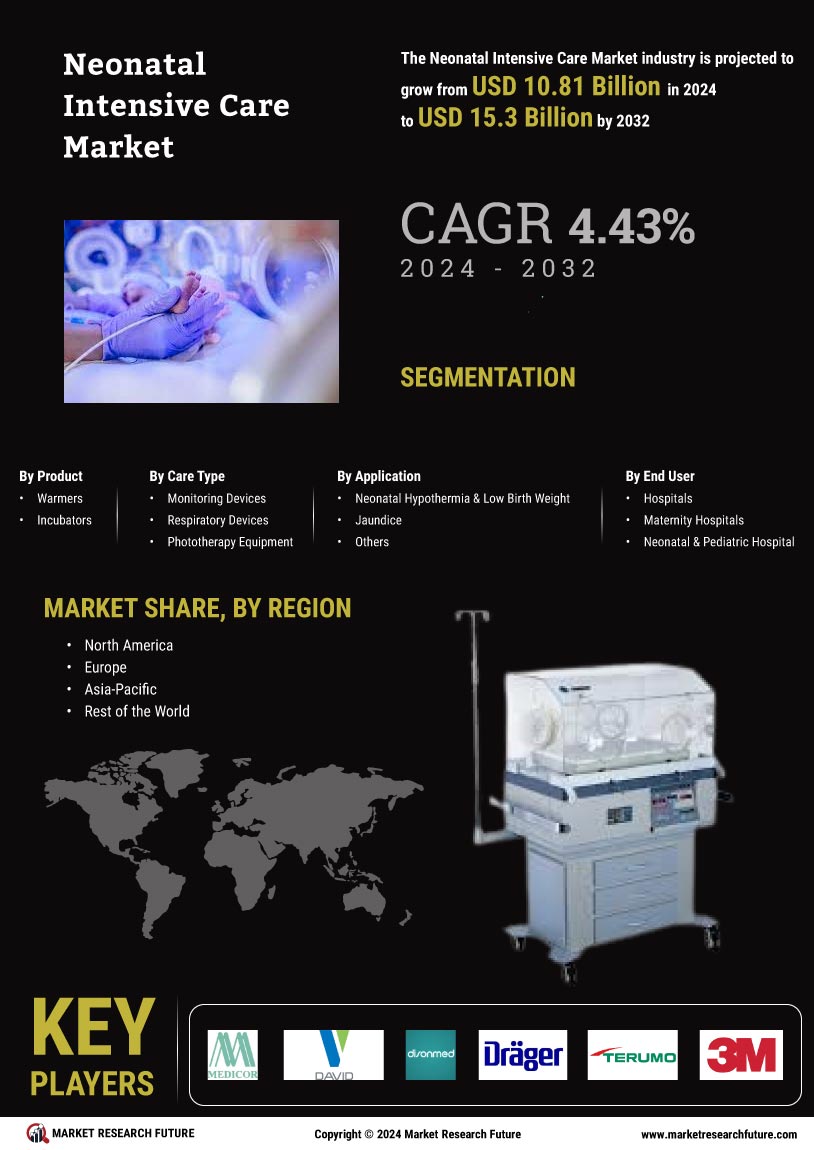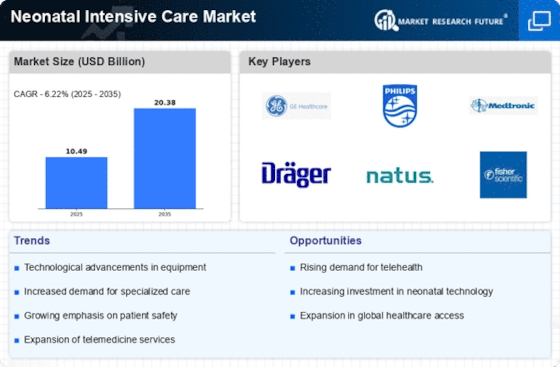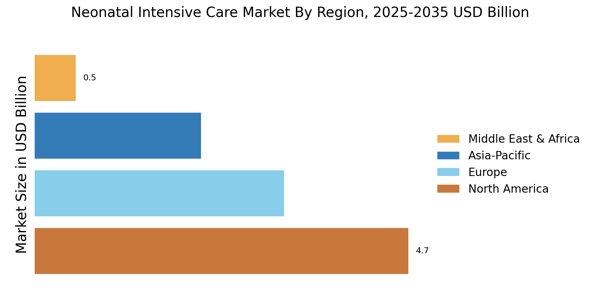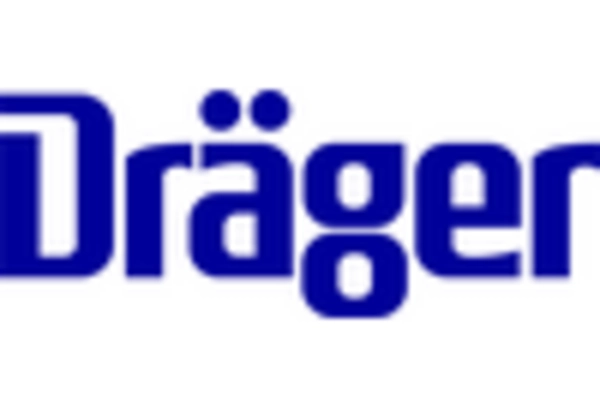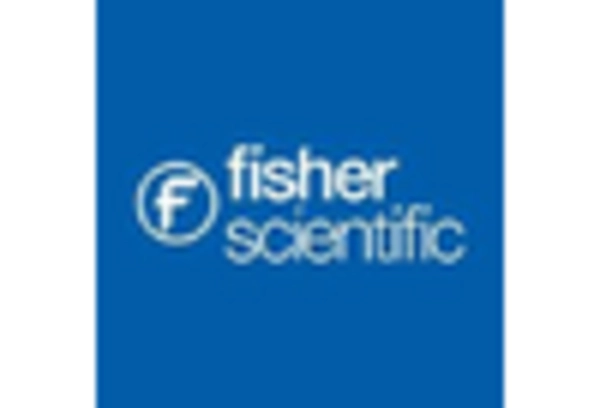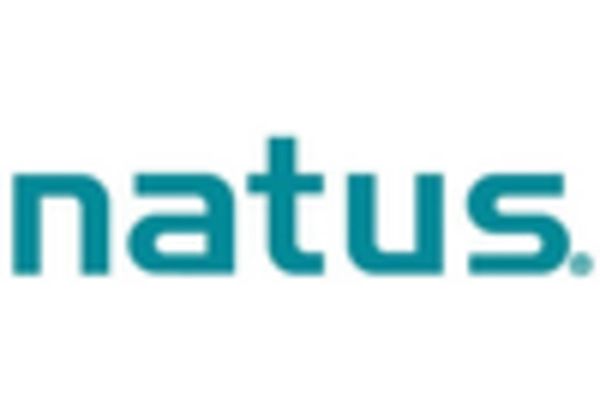Government Support and Funding
Government initiatives and funding programs aimed at improving maternal and neonatal health are pivotal in shaping the Neonatal Intensive Care Market. Various countries have implemented policies to enhance healthcare infrastructure, particularly in underserved areas, which directly impacts the availability of NICUs. Increased funding for neonatal care programs is likely to facilitate the expansion of services and improve access to advanced medical technologies. As governments prioritize maternal and child health, the Neonatal Intensive Care Market is expected to benefit from enhanced resources and support, ultimately leading to better health outcomes for neonates.
Increased Awareness and Education
Growing awareness regarding neonatal health issues and the importance of specialized care is influencing the Neonatal Intensive Care Market. Educational initiatives aimed at healthcare professionals and parents are fostering a better understanding of neonatal conditions and the necessity for timely interventions. This heightened awareness is likely to lead to earlier hospitalizations and increased utilization of NICUs, thereby driving market demand. Furthermore, public health campaigns emphasizing the significance of prenatal care and neonatal screening are expected to contribute to the growth of the Neonatal Intensive Care Market, as more families seek access to specialized services for their newborns.
Rising Prevalence of Neonatal Conditions
The increasing incidence of neonatal conditions, such as prematurity and congenital anomalies, is a primary driver of the Neonatal Intensive Care Market. According to recent data, approximately 15 million infants are born preterm each year, leading to a heightened demand for specialized neonatal care. This trend necessitates advanced medical interventions and technologies, thereby propelling market growth. The need for neonatal intensive care units (NICUs) is expected to rise, as healthcare providers aim to improve survival rates and long-term outcomes for these vulnerable populations. As a result, investments in NICU infrastructure and equipment are likely to increase, further stimulating the Neonatal Intensive Care Market.
Technological Innovations in Neonatal Care
Technological advancements play a crucial role in shaping the Neonatal Intensive Care Market. Innovations such as advanced monitoring systems, incubators, and respiratory support devices have significantly improved the quality of care provided to neonates. For instance, the introduction of non-invasive monitoring technologies has enhanced patient safety and comfort, while also reducing the risk of complications. The market for neonatal medical devices is projected to grow substantially, driven by the demand for more effective and efficient care solutions. As healthcare facilities adopt these technologies, the Neonatal Intensive Care Market is likely to experience robust growth, reflecting the ongoing commitment to improving neonatal health outcomes.
Growing Demand for Specialized Healthcare Services
The rising demand for specialized healthcare services, particularly in neonatal care, is a significant driver of the Neonatal Intensive Care Market. As healthcare systems evolve, there is an increasing recognition of the need for tailored interventions for neonates, who require unique medical attention. This trend is reflected in the expansion of NICUs and the development of specialized training programs for healthcare professionals. The market is likely to see a surge in investments aimed at enhancing the quality of neonatal care, as hospitals strive to meet the growing expectations of families and healthcare providers. Consequently, the Neonatal Intensive Care Market is poised for continued growth.
